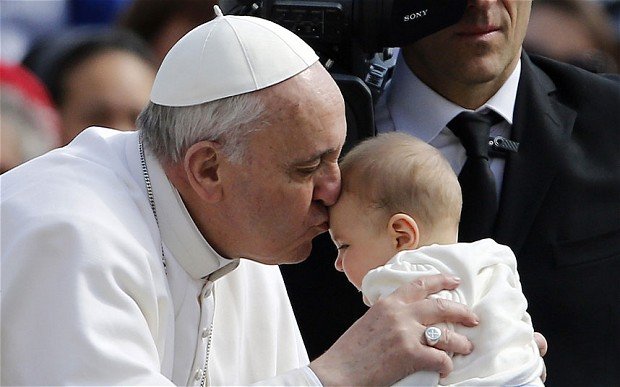A recent Pew Research Center poll has found that 40% of American Catholics are praying more often than they did a year ago.
As Pope Francis wraps up his first year in the Vatican, analysts say the survey’s findings could be explained by what is called the “Francis Effect”.
The “Francis Effect” is the impact of a very popular pope with the common touch who isn’t afraid to shake things up.
Although Pope Francis has an average approval rating from his constituency that any US presidents would envy, it’s not fully clear how much the former Argentinian archbishop is influencing Catholic behavior.

“We’re not seeing any increase in the number of people who identify as Catholics. There is no increase in the frequency with which Catholics say they go to church. People are not going to confession or volunteering more often,” said Greg Smith, director of religion surveys for the Pew Research Center.
At the same time, pollsters did detect pockets of growing enthusiasm, especially among the most committed Catholics.
“One in four tells us they’re more excited about their faith in the last year. Four out of 10 say they’re praying more often. And one in five say they have been reading the Bible or other religious materials more often,” Greg Smith said.
Since he succeeded conservative Pope Benedict last March, Pope Francis has been heralded as a breath of fresh air: down-to-earth and focused on the downtrodden.
Pope Francis inspired the Twitter hashtag #bestpopeever — but the Pew data reveals he’s not actually the most-liked man to occupy the throne of St. Peter in modern times.
Eighty-five percent of American Catholics have a favorable opinion of Pope Francis, substantially higher than Pope Benedict’s 75% rating but still lower than the 93% that John Paul II basked in during the 1990s.
